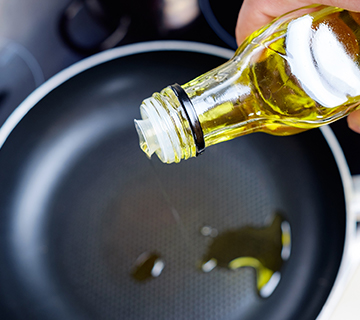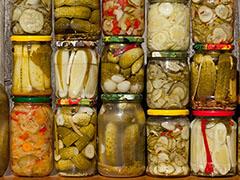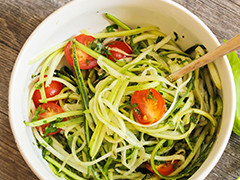Cooking with Healthy Oils

Extra-virgin olive oil is in every kitchen for a reason: it’s full of flavor, works in just about any dish and is full of health benefits. But what if you want to add new flavors into your meal? Try working in alternative oils when you cook.
Many natural oils contain healthy, unsaturated fats that your body depends on. These fats may improve your cholesterol and lower the risk of type 2 diabetes, while also helping your body digest dietary vitamins. On the other hand, oils tend to be high in calories and contain unhealthy saturated fats too, so it’s best to include it as a small part of a balanced diet.
All oils are different; the most important thing to keep in mind is the smoke point for each type. At a certain temperature, oil will start smoking and produce dangerous gases—some shouldn’t be heated at all.
Here are some oils you can try cooking with:
- Almond oil is low in saturated fat and its almond content also may help reduce blood pressure. It has a high smoke point, so it works well for searing, but also goes great on salads thanks to its nutty flavor.
- Avocado oil is similar to olive oil as it may lower blood pressure and cholesterol. It’s unclear if avocado oil has all the same benefits as whole avocados, but it has a high smoke point making it a great oil for just about anything.
- Canola oil might lack the amount of healthy omega-3 fats found in olive oil, but it has the lowest level of unhealthy, saturated fats among oils. This has a medium to high smoke point, so it’s best to use canola oil for baking or oven cooking.
- Coconut oil packs a lot of flavor but it also contains the highest amount of saturated fat. This makes it not-so-good for heart health—use it only in small amounts or just replace it with canola or extra-virgin olive oil.
- Nut oils, like walnut or pecan oil, contain heart-healthy fats that may lower blood pressure. They shouldn’t be heated though, so use them for salad dressings.
- Flaxseed and wheat germ oils contain a lot of healthy omega-3 and omega-6 oils, which may help lower your blood pressure. Similar to nut oils, these shouldn’t be heated and work well on salads.
If you’re looking to take charge of your diet, take our Blue Health Assessment. Standard and Basic Option members may be able to earn rewards for answering questions about their health. You’ll get a personalized action plan to help you start eating right. If you’ve been diagnosed with high blood pressure, you may be eligible to receive a free blood pressure monitor too.


